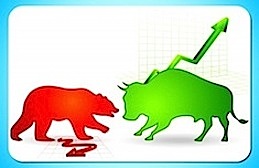Tag: stock market indicators
Equities Indicator? Watch The ROC On The JNK TLT Ratio
Equities have been choppy lately, making life for traders difficult. One indicator that I like to follow to gauge equities risk on/off is the...
S&P 500 Update: Is The Market Running To Stand Still?
Over the past several months, the S&P 500 has managed to climb higher while momentum is slowing and volatility is re-emerging. As we've noted several times,...
Dow Theory Non Confirmation Signal: Spring 2012 Repeat?
Dow theory can be a valuable tool to have in your toolkit. Especially if you keep the confirmation and non-confirmation signals in perspective of...
Why Market Ratios Deserve A Place In Your Trading Toolkit
Many traders, especially when first starting out, focus on the individual chart of whatever they are trading. If you’re trading the S&P 500, watch...
Dow Theory In Focus: Will Transports Confirm Industrials Highs?
As the markets push higher, investors tend to become more wary by nature. This often leads to the markets climbing the proverbial "wall of...
3 Charts Showing Signs Of Market Exhaustion
It was a great February for the stock market, as the major market indices literally went straight up. For the month, the broad-based S&P 500 was...
Measuring Market Breadth: A Look Inside The Stock Market
On Wednesday I had a conversation with Urban Carmel and Jesse Felder about measuring market breadth. If you are unfamiliar with Urban and Jesse, they are...
Trend Traders: Why It’s Time To Put January Behind Us
Stocks started 2015 inauspiciously with the S&P 500 (SPX) down 3% in January. That equates to a coin toss regarding how stocks will end the...
Did Tuesday Provide A Bullish Signal For Stocks?
Major indexes find themselves at a critical juncture. On one hand, longer-term patterns are clearly bullish, the October recovery was such a statistical outlier...
S&P 500: Near-Term Distribution Patterns Emerging
We ended last week with some kind of distribution forces in the S&P 500 (SPX - Quote) as a negative outside day pattern developed. This...















